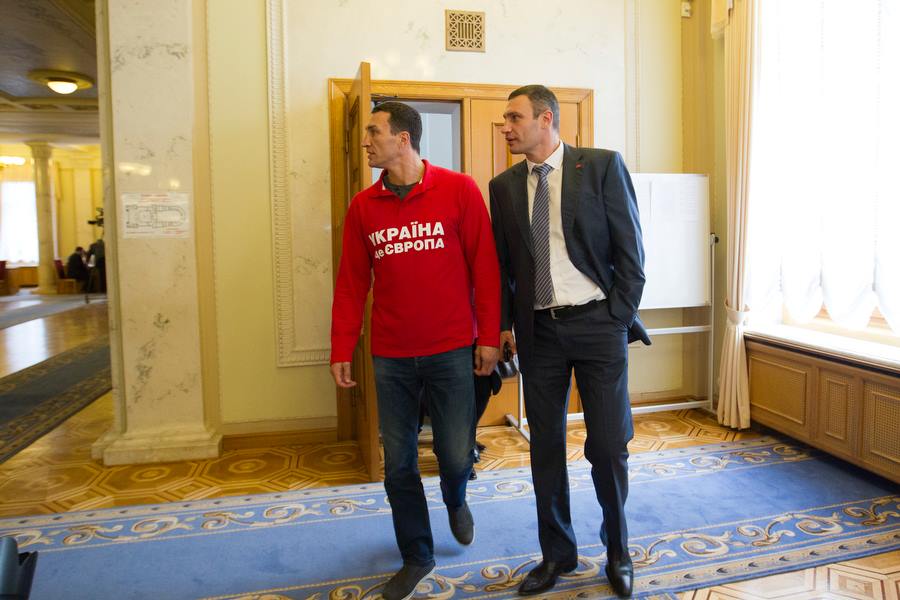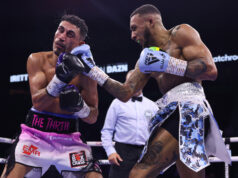Vitali Klitschko has had one foot in boxing and one foot in politics for several years now, but at the age of 42 his latest retirement from the sport seems like his final and permanent one. With that, he now has both feet in the political arena and his eyes are on Ukraine’s Presidency. As boxing fans bid Dr. Ironfist adieu, a look at the man’s record and place in Ukrainian politics is in order, if only to serve as a fond farewell.
Klitschko’s Political Record: 4-1
The Klitschko brothers first put their toes in Ukraine’s political waters in 2004, when they vocally supported the Orange Revolution and its standard bearer, Viktor Yuschenko. In time, Klitschko the Elder became an adviser to Yuschenko.
That post coupled with Klitschko’s first retirement was what likely prompted his ill-advised run for mayor of Kiev in 2006. Serving as the candidate for an alliance of two Orangist parties (both now defunct), Klitschko came late to the campaign and was trounced. Even so, Dr. Ironfist was elected to the city council, so the defeat was not a lopsided rout.
Following this first outing, Klitschko founded his own party, the Ukrainian Democratic Alliance for Reform (UDAR), which has made inroads into government in city, regional (Oblast) and national parliamentary elections. UDAR is currently the second-largest opposition party in the Rada (the Ukrainian Parliament) and the third-largest overall.
Stance, Corner, and Opposition
On the issue of the day, the current round of demonstrations in Kiev, Klitschko stands firmly with the demonstrators. This furor is over the shelving of an association treaty with the European Union, which the current Russophile government rejected to appease its friends in the Kremlin, and Dr. Ironfist has been avowedly pro-Western since his first political utterances several years back.
He also supports the release of All-Fatherland (the country’s second-largest and main opposition party) leader Yulia Tymoshenko, controversially jailed on abuse of power charges in 2011. Unsurprisingly, Klitschko’s UDAR shares many of the standard tenets of the mainstream, non-nationalist Ukrainian opposition: anti-corruption, greater public transparency, smaller government, strengthened rule of law and civil society. Perhaps the major difference separating Klitschko and his party from All-Fatherland is that Klitschko is not Tymoshenko, who is a polarizing figure in Ukraine.
On the other side of the aisle is the Party of Regions and its sitting President, Viktor Yanukovich. Ukraine’s current President is enjoying a political comeback, as he was the intended successor to Leonid Kuchma in 2004, and it was the crisis provoked by that election’s large scale fraud that provoked the Orange Revolution. Yanukovich and the Party of Regions are, in a nutshell, the party of the status quo, having ruled Ukraine in a semi-authoritarian fashion for much of the time since the fall of the Soviet Union, excepting the Oragnist interlude.
If he should run for President, Vitali Klitschko should tread cautiously and remember what happened to the last opposition candidate who triumphed. When Viktor Yushenko looked like a winner back in 2004, he was poisoned with the Agent Orange toxin TCDD, and still has not yet made a full recovery.











